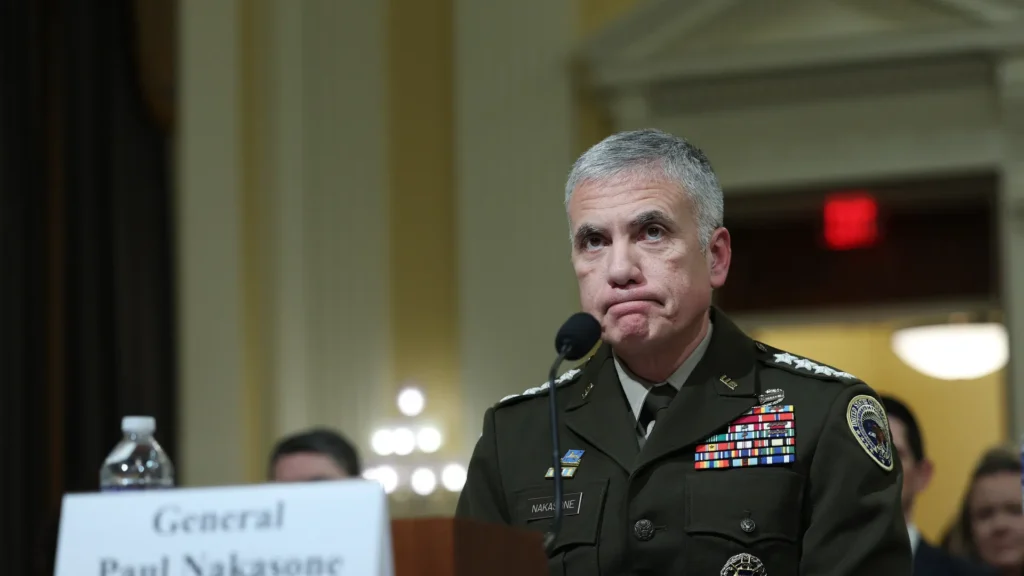Paul Nakasone, a retired Army general who served as the director of the National Security Agency (NSA) and the head of U.S. Cyber Command, has been nominated to the board of directors of OpenAI. By making this choice, OpenAI hopes to strengthen its defenses against sophisticated attacks on its ChatGPT technology by malevolent actors. Nakasone has a wealth of experience in intelligence and cybersecurity. Prior to retirement earlier this year, he held key positions in US national security.
Nakasone’s appointment comes as OpenAI continues to stabilize its board following previous leadership upheavals. The company faced significant internal challenges that led to the abrupt dismissal and subsequent reinstatement of CEO Sam Altman. With Altman’s return and the board’s restructuring, OpenAI seeks to strengthen governance and operational oversight as it navigates rapid growth in the AI sector.
In addition to joining the board, Nakasone will lead OpenAI’s newly formed safety and security committee. This committee is tasked with advising on critical decisions related to the safety and security of OpenAI’s projects and operations. The establishment of this committee follows the dissolution of a previous safety team, underscoring OpenAI’s commitment to enhancing its defensive posture and safeguarding against potential vulnerabilities.
OpenAI operates as a nonprofit organization with significant commercial interests, balancing technological innovation with ethical considerations and regulatory compliance. The appointment of Nakasone underscores the company’s proactive approach to mitigating cybersecurity risks amid increasing scrutiny over AI ethics and data privacy.
Throughout his career, Nakasone has been recognized for his leadership in advancing cybersecurity capabilities within the U.S. military and intelligence community. His tenure included pivotal roles in defending against cyber threats and overseeing intelligence operations critical to national security. Nakasone’s strategic insights and expertise are expected to provide valuable guidance as OpenAI expands its AI capabilities and navigates complex geopolitical and regulatory landscapes.
The role of AI in society continues to evolve, prompting heightened concerns about the ethical implications of AI technologies and their potential misuse. OpenAI’s decision to appoint Nakasone reflects a broader industry trend of integrating cybersecurity expertise into corporate governance structures to preemptively address emerging threats and vulnerabilities.
Because of his experience as a top U.S. intelligence officer and cyberwarrior, Nakasone is in a unique position to support OpenAI’s strategic goals. During the Trump and Biden administrations, he oversaw the Army component of U.S. Cyber Command and held the position of director of the National Security Agency. Nakasone has a thorough awareness of the opportunities and difficulties that companies like OpenAI face in the current digital environment because of his combined responsibilities for managing cyber operations and intelligence collecting.
The appointment of Nakasone underscores OpenAI’s commitment to enhancing its resilience against cyber threats while advancing responsible AI development practices. By leveraging Nakasone’s expertise, OpenAI aims to strengthen its defensive capabilities and ensure the integrity and security of its AI technologies. This proactive approach aligns with broader industry efforts to address cybersecurity challenges and uphold ethical standards in AI innovation.
Nakasone is taking the lead in coordinating the development of AI with strong security protocols and moral principles by serving on the board of OpenAI and chairing the safety committee. Ensuring AI technologies are deployed responsibly and are resilient against malicious actors is crucial as they grow more and more interwoven into daily life. Nakasone’s hiring is only one of OpenAI’s strategic actions that highlight the company’s dedication to ethical leadership in the AI ecosystem and constant watchfulness over changing cybersecurity threats.
If you like the article please follow on THE UBJ.
